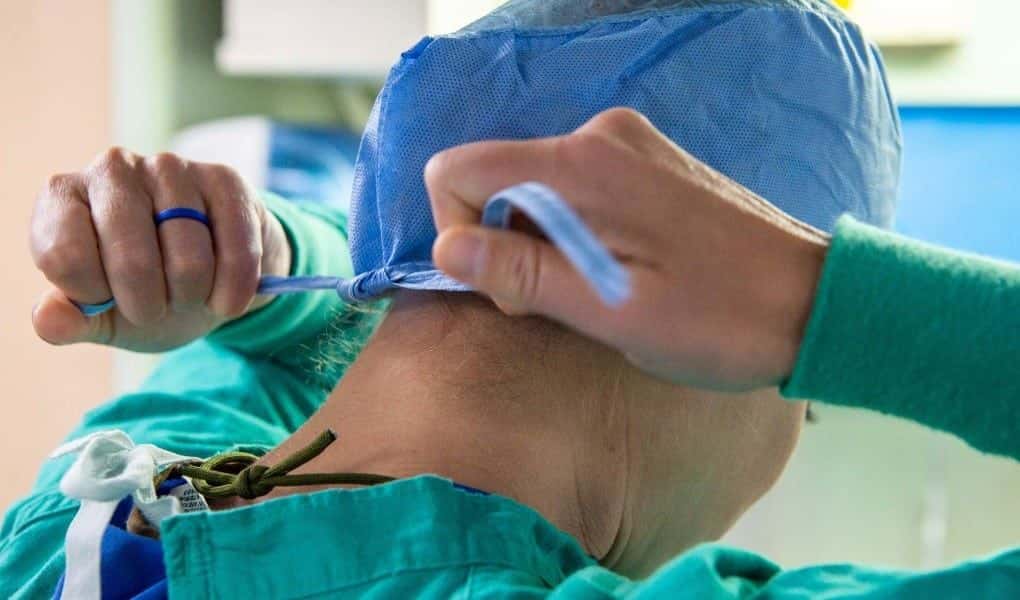Court: Court of Appeals of MississippiJurisdiction: FederalCase Name: Fipps v. Greenwood Leflore HospCitation: 2018 Miss. App. LEXIS 53
The plaintiff called a general surgeon as an expert witness to opine on the gastrointestinal complications the patient suffered. However, the court excluded the expert based on his lack of board certification and experience in gastroenterology standards of care.
Facts
The plaintiff underwent an esophagogastroduodenoscopy (EGD) procedure at the defendant hospital. According to the doctor who performed the procedure, the plaintiff complained about epigastric (upper abdomen) pain. Additionally, the plaintiff had dysphagia (difficulty swallowing), bleeding in the rectum, and constipation. The plaintiff also told the doctor that he may have ingested a small piece of plastic a few days before his initial consultation. During the procedure, the surgeon dilated the patient’s esophagus to alleviate his dysphagia. The plaintiff claimed that this procedure perforated his esophagus. This allegedly led the patient to develop medical complications, including a neck abscess. The patient required two corrective surgeries as a result of these complications.
The plaintiff designated a general surgeon as an expert witness regarding upper and lower gastrointestinal issues. The defendant filed a motion before the trial court to exclude the testimony of the plaintiff’s expert. The trial court ruled in favor of the defendant and excluded the testimony of the plaintiff’s expert. The plaintiff appealed the motion. The issue before the court was whether the trial court erred in excluding the testimony of the plaintiff’s medical expert.
The Plaintiff’s Gastroenterology Expert Witness
The plaintiff’s expert stated that the plaintiff’s treating surgeon deviated from the standard of care expected of a physician in the expert’s profession and specialty. In his affidavit attached to the designation, the expert stated that the performance of the esophageal dilation had not been shown to be indicated in any of the physician’s pre-operative or intraoperative findings. The expert also opined that the procedure performed by the doctor was definitively the event that led the plaintiff to develop a fistula and a subsequent neck abscess.
Based on the deposition of the expert, the defendant filed three pre-trial motions. The first asked the court to exclude portions of the expert’s testimony concerning informed consent. The second asked the court to exclude any possible testimony by the expert that he had a current medical license or that he had never been disciplined by any medical licensing board. The third motion asked the court to exclude the expert opinion on the basis that he lacked the necessary credentials to testify. The trial court granted all three motions, which excluded the expert’s testimony. As a result, the plaintiff’s motion failed due to a lack of expert testimony to meet his burden of proof. The plaintiff filed this appeal claiming the trial court had erred in excluding the expert’s testimony.
Discussion
The plaintiff, while arguing that the trial court erred in excluding the expert’s testimony, argued that the expert was qualified as a gastroenterologist expert. However, the trial court found no evidence in the expert’s deposition to demonstrate that the expert had knowledge of the standard of care for gastroenterology procedures. The trial court recognized that the expert did have some familiarity with EGD procedures. Yet, the expert did not testify that he had knowledge of the gastroenterology standards of care.
The court held that the trial court had not abused its discretion in excluding the expert’s opinion. The expert had knowledge of some gastroenterology procedures. However, this experience did not indicate sufficient knowledge of the standard of care to which a gastroenterologist is held. Furthermore, the court believed that the plaintiff’s motion had no merit in the absence of expert testimony.
The court already affirmed the trial court’s decision to exclude the expert’s testimony. As such, it saw no reason to discuss the merits of the plaintiff’s argument against the exclusion of the expert’s opinion on informed consent. The court similarly dismissed the issue of the motion on licensure for the aforementioned reason.
Ruling
The court affirmed the trial court’s decision to exclude the gastroenterology expert’s testimony.
Key Takeaways for Experts
This case illustrates the importance of exercising caution when taking on cases outside of your expertise. In this case, the expert was somewhat familiar with gastroenterological procedures. However, the expert did not have sufficient knowledge of gastroenterology standards of care. When offering professional opinions, you should only offer opinions when you have that specific background or expertise that’s relevant to the facts of the case.
About the author
Wendy Ketner, M.D.
Dr. Wendy Ketner is a distinguished medical professional with a comprehensive background in surgery and medical research. Currently serving as the Senior Vice President of Medical Affairs at the Expert Institute, she plays a pivotal role in overseeing the organization's most important client relationships. Dr. Ketner's extensive surgical training was completed at Mount Sinai Beth Israel, where she gained hands-on experience in various general surgery procedures, including hernia repairs, cholecystectomies, appendectomies, mastectomies for breast cancer, breast reconstruction, surgical oncology, vascular surgery, and colorectal surgery. She also provided care in the surgical intensive care unit.
Her research interests have focused on post-mastectomy reconstruction and the surgical treatment of gastric cancer, including co-authoring a textbook chapter on the subject. Additionally, she has contributed to research on the percutaneous delivery of stem cells following myocardial infarction.
Dr. Ketner's educational background includes a Bachelor's degree from Yale University in Latin American Studies and a Doctor of Medicine (M.D.) from SUNY Downstate College of Medicine. Moreover, she is a member of the Board of Advisors for Opollo Technologies, a fintech healthcare AI company, contributing her medical expertise to enhance healthcare technology solutions. Her role at Expert Institute involves leveraging her medical knowledge to provide insights into legal cases, underscoring her unique blend of medical and legal acumen.



